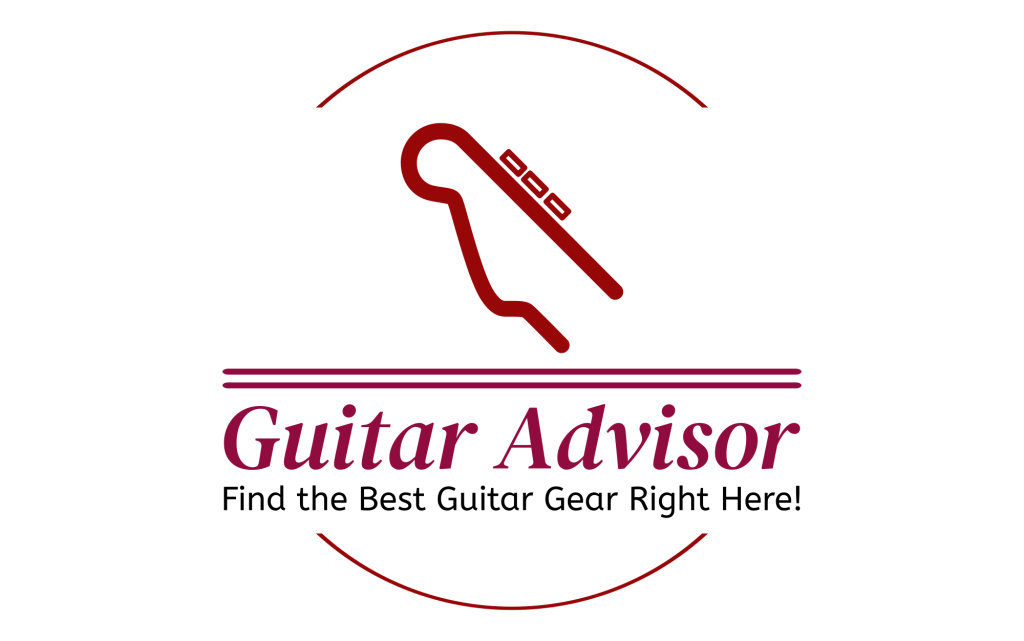What kinds of guitars are ideal for those starting their musical journey? If you’ve ever asked yourself this question, you’re in good company. Choosing your first guitar is like picking out a new pair of shoes; it needs to fit just right, be comfortable, and inspire you to strum a few chords every chance you get. So, let’s embark on this musical adventure together, armed with information to make the best decision for your budding rock star career.
Understanding the Basics
Acoustic vs. Electric: The Age-Old Debate
It all starts with deciding between an acoustic and an electric guitar. Each type has its quirks, advantages, and disadvantages worth considering.
Acoustic Guitar Pros:
- Simplicity: All you need is the guitar and you’re ready to play.
- Portability: No need for amplifiers; you can serenade your friends anywhere.
Cons:
- Harder to play: The strings may feel tougher on your fingers.
- Volume control: Can’t really lower the sound for late-night practice sessions.
Electric Guitar Pros:
- Easier to play: Softer strings and more finger-friendly action.
- Versatility: You can manipulate sounds, using effects and amplifiers.
Cons:
- Additional gear: Amplifiers and cables add to the cost and complexity.
- Portability: Not as easy to take to a campfire sing-along.
Classical vs. Steel-String Acoustic Guitars
If you’ve settled on an acoustic guitar, it’s crucial to choose between classical (nylon string) or steel-string models. Each has its own sound and feel.
Classical Guitar Pros:
- Softer strings: Easier on the fingers for beginners.
- Wider fretboard: Great for fingerpicking.
Cons:
- Limited in genres: Most suited for classical and Spanish music.
- Bulkier neck: May be harder to manage for smaller hands.
Steel-String Acoustic Guitar Pros:
- Versatile: Suitable for a variety of music styles from pop to blues.
- Brighter sound: More volume and resonance.
Cons:
- Tougher strings: Can be challenging for beginners.
- Narrower fretboard: Might be harder for fingerstyle playing.
Major Guitar Brands to Consider
Purchasing from a reputable brand can ensure quality and durability. Some brands have stood the test of time and offer excellent options for beginners. Here’s a quick rundown:
| Brand | Key Features | Price Range |
|---|---|---|
| Yamaha | Reliable quality, great value | $150 – $500 |
| Fender | Iconic design, beginner-friendly models | $200 – $600 |
| Epiphone | Affordable versions of Gibson classics | $150 – $500 |
| Squier | Fender’s more affordable sibling | $150 – $400 |
| Ibanez | Good for rock and metal beginners | $200 – $500 |
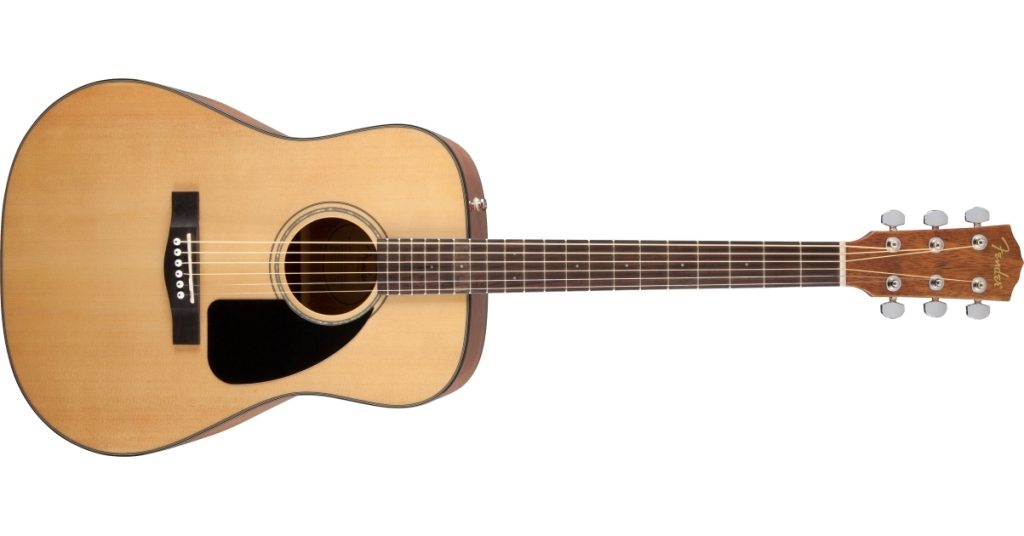
Features to Look For
Body Size and Shape
The body size and shape of a guitar can substantially affect your playing experience, especially as a beginner. The options range from compact, travel-sized guitars to dreadnoughts.
Common Sizes:
- Concert and Grand Concert: Smaller body, comfortable for young players.
- Dreadnought: Larger body, powerful sound, but might be unwieldy for beginners.
- Parlor: Small, ideal for fingerpicking.
Neck and Fretboard
The neck and fretboard are where the magic happens. They should feel comfortable in your hands and make it easy to form chords and play notes.
- Neck Width: Classical guitars have wider necks, while steel-string acoustics and electrics are narrower.
- Scale Length: Shorter scale lengths can make for easier playing.
- Action: Refers to the height of strings over the fretboard. Lower action is easier for beginners to press down on the strings.
Pickups and Electronics
While this is more applicable to electric guitars, understanding pickups can help you choose the right guitar:
- Single-Coil Pickups: Bright and clear sounds, common in Fender guitars.
- Humbucker Pickups: Thicker, heavier sounds, common in rock and metal genres.
Quality of Construction
The materials used in making a guitar significantly impact its durability and sound quality. Look for:
- Solid Wood vs. Laminate: Solid wood offers better sound but at a higher price, while laminate is more durable and affordable.
- Hardware: Check for sturdy tuning pegs and well-set frets.
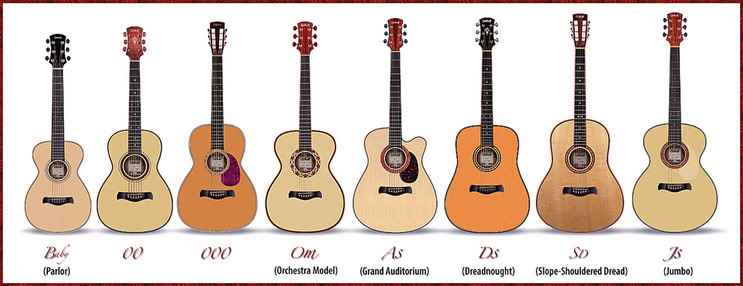
Budgeting and Value for Money
Setting a Budget
Before you head to the store or start filling your online cart, it’s essential to determine how much you’re willing to spend. A decent beginner guitar will usually cost anywhere from $150 to $500. It’s not advisable to go for the cheapest option, as extremely low-cost guitars often have issues with durability and playability that can make learning more challenging and less enjoyable.
Here’s a rough idea of what to expect within various budget ranges:
| Price Range | What to Expect |
|---|---|
| $100 – $200 | Basic models, often laminated woods, decent for test drives |
| $200 – $500 | Better build quality, possibly solid top, reliable tuning |
| $500 and up | Higher-end beginner models, excellent build and sound |
Essential Accessories
You’ll also need a few essential accessories:
- Tuner: An absolute must to keep your guitar in tune.
- Guitar Strap: Helpful if you plan on standing while playing.
- Gig Bag or Hard Case: Essential for protecting your guitar.
- Extra Strings: Strings break, especially when you’re learning, so keep some spares handy.
- Capo: Useful for playing songs in different keys without changing finger positions.
- Picks: A variety of picks to find your preferred thickness and material.
Buying New vs. Used
Purchasing a used guitar can be a rewarding way to get a higher-end model for less money. However, it requires a bit more knowledge and scrutiny:
Pros of Buying Used:
- Lower cost for higher quality.
- Already “broken in,” meaning the wood has settled.
Cons of Buying Used:
- No warranty typically.
- Potential hidden problems, like fret wear or neck warp.
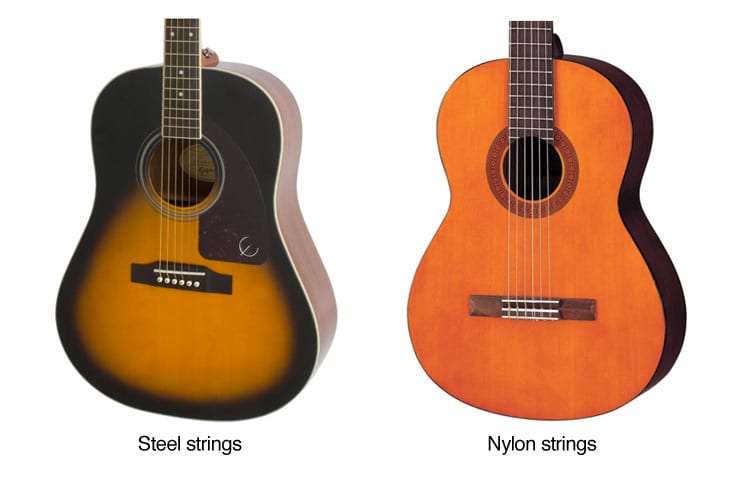
Recommendations for Beginners
Best Acoustic Guitars for Beginners
- Yamaha FG800
- Features: Solid spruce top, excellent build quality.
- Price Range: $200 – $300
- Why It’s Great: Reliable and high-quality sound, perfect for beginners.
- Fender CD-60S
- Features: Solid top, easy-to-play neck.
- Price Range: $150 – $250
- Why It’s Great: Great value and very comfortable to play.
- Epiphone DR-100
- Features: Mahogany body and select spruce top.
- Price Range: $150 – $200
- Why It’s Great: Affordable and durable, good for getting your feet wet.
Best Electric Guitars for Beginners
- Squier Affinity Stratocaster
- Features: Classic Fender design, versatile tone.
- Price Range: $200 – $300
- Why It’s Great: Recognizable and revered, good for various genres.
- Yamaha Pacifica Series PAC112V
- Features: Solid alder body, versatile pickups.
- Price Range: $250 – $350
- Why It’s Great: High versatility for a range of styles, excellent build quality.
- Epiphone Les Paul Special II
- Features: Mahogany body, dual humbuckers.
- Price Range: $150 – $200
- Why It’s Great: Affordable way to own a Les Paul-style guitar, heavy rock sound.
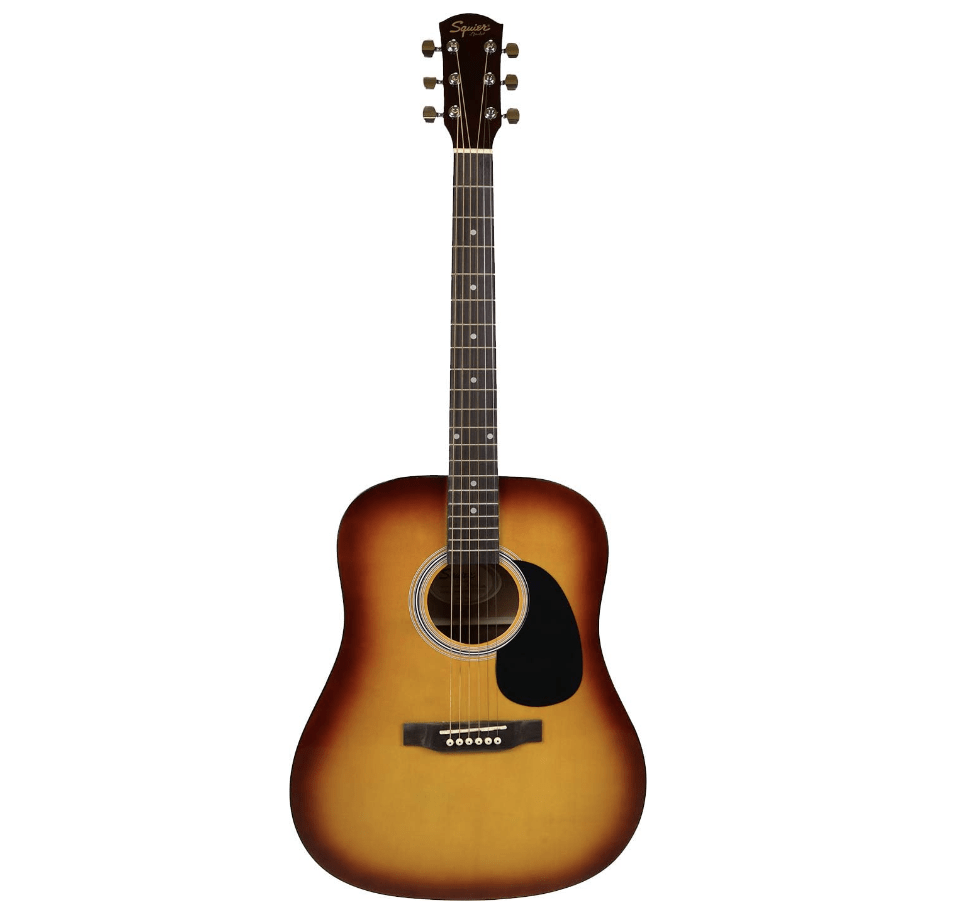
Final Tips
Guitar Maintenance
A well-maintained guitar will sound better and be easier to play:
- Regular Cleaning: Wipe down strings and body after each use.
- String Changes: Change your strings every few months, or as needed.
- Storage: Store in a gig bag or case to protect from dust and damage.
Practice and Persistence
The shiny new guitar won’t make you a rock star overnight, but daily practice will. Aim for consistency—20 to 30 minutes a day can lead to significant improvement over time.
Take Lessons
While self-teaching resources abound, nothing beats structured lessons from a seasoned instructor to kickstart your journey. Even a few initial lessons can set you on the right path and prevent the formation of bad habits.
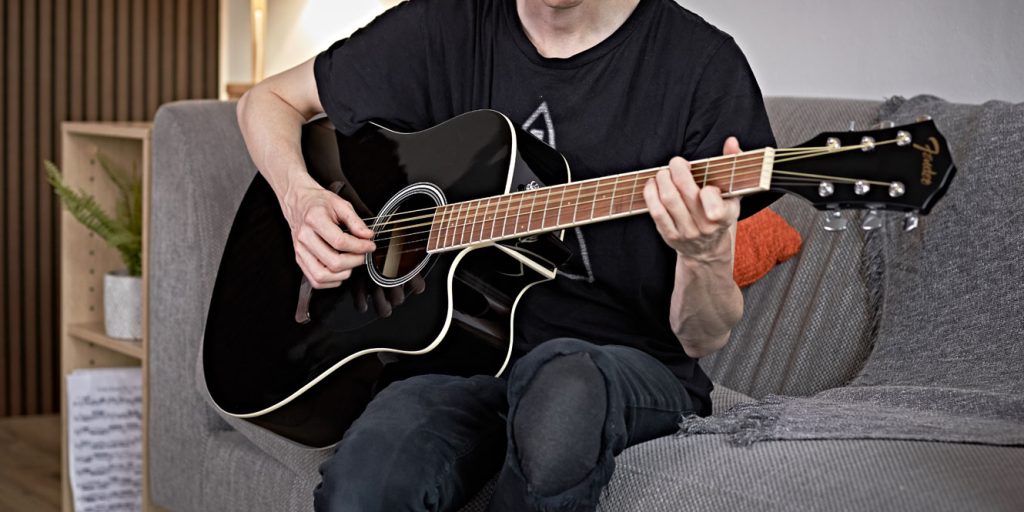
The Journey Ahead
Choosing the best guitar for beginners involves more than picking the shiniest one on the shelf; it’s about finding the right fit for you. From understanding the basics to factoring in your budget and preferences, there’s a lot to consider. However, with the right information, this process can be smooth and enjoyable. After all, your first guitar is the stepping stone to countless hours of joy, creativity, and maybe even a life-long passion for music.
So, what are you waiting for? Pick that guitar, strum those strings, and let your musical journey begin!
Hello, I’m an author for My Guitar Advisor. I love writing about and playing guitar, mainly fingerstyle but dabble into all genres. I hope you enjoy my writing and reviews.
